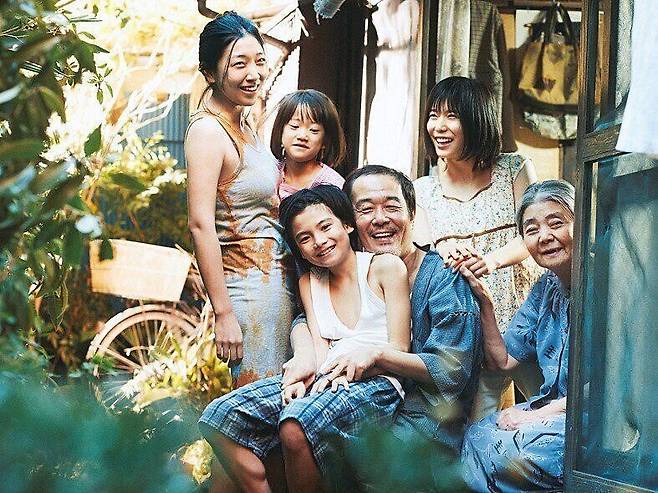[Editorial] The time has come to acknowledge families outside of spouses and blood ties
이 글자크기로 변경됩니다.
(예시) 가장 빠른 뉴스가 있고 다양한 정보, 쌍방향 소통이 숨쉬는 다음뉴스를 만나보세요. 다음뉴스는 국내외 주요이슈와 실시간 속보, 문화생활 및 다양한 분야의 뉴스를 입체적으로 전달하고 있습니다.

The South Korean government has agreed to move forward with developing policies and revising laws to more proactively reflect the growing diversity of families. On Jan. 26, the Ministry of Gender Equality and Family (MOGEF) announced its fourth masterplan for healthy families (2021-2025) and held a public hearing on that topic.
The family is at once the basic social unit and the product of social changes. The failure of laws and institutions to keep up with the broadening definition of the family is a problem that goes beyond the growing disconnect with reality. It produces alienation and discrimination on a large scale and damages social stability and integration.
Korea’s current laws are still based in the patriarchy, with its focus on blood ties. We believe that the institution of the family needs to be changed every bit as much as the hoju family register system, which was abolished in 2008.
The most noteworthy thing announced by MOGEF is its plan to revise current legislation that only defines family in terms of marriage and blood ties. Korea’s civil code limits one’s family to one’s parents, children, siblings, spouse, and spouse’s family. The Healthy Family Act also focuses on marriage, blood relations and adoption.
But the proportion of households that actually fit that definition — households, that is, consisting of a married couple and their unmarried children — has fallen considerably in recent years, from 37.0% in 2010 to 29.8% in 2019. During that same period, the proportion of single-person households has risen from 23.9% to 30.2%. Presumably, there has also been a major upswing in the number of people who’ve decided not to get married and the people who are cohabiting.
Furthermore, there’s been a sea change in Koreans’ attitudes. In a poll carried out by MOGEF in 2020, 69.7% of respondents agreed with the statement that people who live together and support each other are family even if they aren’t married or related by blood.
When the laws aren’t in sync with reality, many suffer from discrimination and many others fall between the cracks in the law. TV dramas have been written about people who aren’t able to give consent for a partner’s surgery because they aren’t legally recognized as a family member.
People who live alone — many of whom never intend to get married — are shut out of various welfare programs, including tax breaks and residential support. Korea also needs to create a program that would give cohabiting households the same welfare benefits as legally married households, as France does with its civil solidarity pact.
The biggest shortcoming of Korea’s basic livelihood security program is that it’s limited to those who don’t have any relatives who could support them. That restriction should also be regarded as a product of familial institutions’ focus on blood relations.
Under the Act on Punishment for Domestic Violence, a perpetrator can’t even be prosecuted against the wishes of the victim in cases where the two parties are neither in a legal marriage or a de facto marriage.
These laws should have been revised long ago, but better late than never.
As we saw during the abolition of the family register system, changing laws and institutions related to families arouses a backlash from those who hold to a traditional outlook. But we think that price is worth paying in order to reduce discrimination and increase equality in Korean society.
Without shrinking from conflict, and remaining firm but flexible, we should proceed with a public debate on these issues.
Please direct comments or questions to [english@hani.co.kr]
Copyright © 한겨레신문사 All Rights Reserved. 무단 전재, 재배포, AI 학습 및 활용 금지
- 내일 태풍급 바람에 큰눈 온다…모레는 체감온도 -22도로 ‘뚝’
- “어떻게 버틴 1년인데”…‘집단 숙식’ 국제학교 앞엔 원망이 들끓었다
- 문 대통령, 박범계 법무부 장관 임명…28일 임기 시작
- 귀신고래 384마리 굶어죽어…온난화 재앙 ‘사망 사태’ 선포
- ‘20년 억울한 옥살이’ 윤성여씨, 25억 형사보상 청구
- 민주당 “영업손실 보상, 소급적용 없다”…풀어야 할 과제는?
- [세상읽기] 김종철 성추행, 왜 고소하지 않느냐고? / 임재성
- [포토] “골프장 샤워실 되고, 헬스장은 왜 안되나” 포승줄 회견
- 논란의 ‘최재형상’ 계속 유지하겠다는 광복회
- [뉴스AS] 친고죄 폐지…이러라고 한 게 아니다